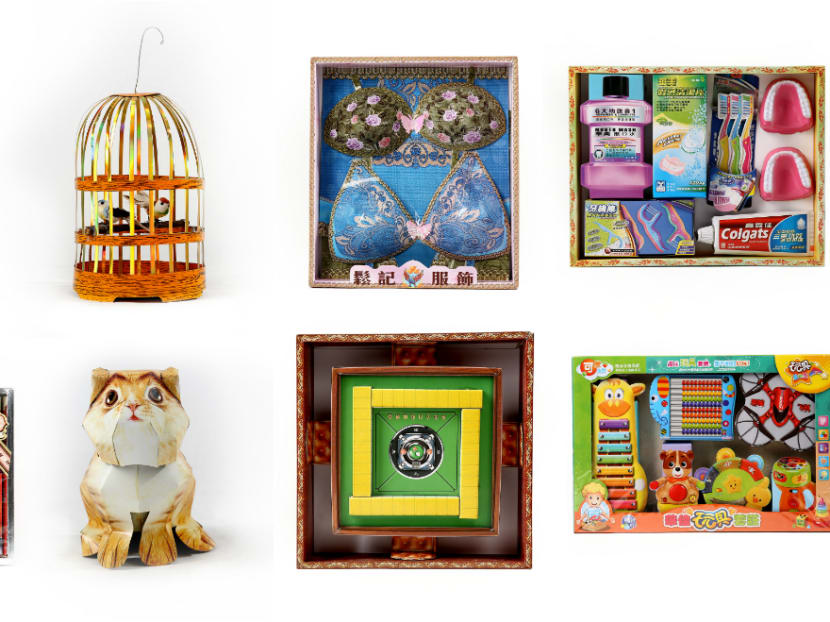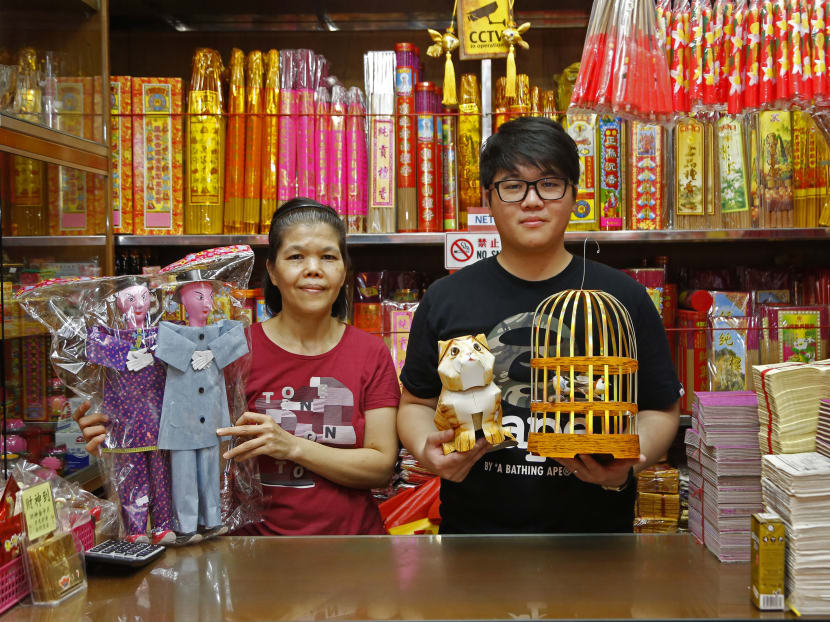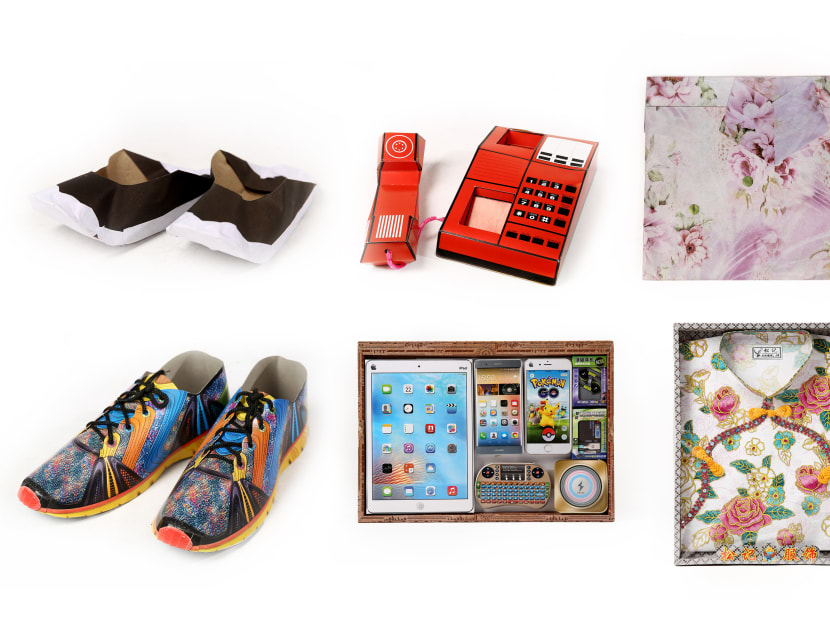Keeping up with the trends – even for hungry ghosts
SINGAPORE – Jackpot machines, pet dogs and cats, petrol kiosks, an array of foreign currency, fast food meals or even condominium blocks – there is almost nothing that one cannot get from Ban Kah Hiang Trading at Jalan Bukit Merah.

Staff of KTV pub Club FML at Prinsep Street throw joss paper into the air after performing the ritual of burning offerings to wandering spirits during the Hungry Ghost month. The pub typically spends between S$1,000 and S$2,000 on these paper offerings. Photo: Nuria Ling/TODAY
SINGAPORE – Jackpot machines, pet dogs and cats, petrol kiosks, an array of foreign currency, fast food meals or even condominium blocks – there is almost nothing that one cannot get from Ban Kah Hiang Trading at Jalan Bukit Merah.
The paper effigies range in price from 10 cents to S$20, designed to ensure a very comfortable, even luxurious, afterlife.
The ability to offer new products every year to keep up with customers’ demands is how one of the Republic’s oldest joss paper shop has stepped up its game.
And this month is one of the busiest period for the industry, with the Hungry Ghost Festival, known also as Zhong Yuan Jie, kicking off last Tuesday (Aug 22).
Believers believe that the spirits of the dead roam the earth during this period, and they can get up to mischief if ignored. So joss paper offerings – or kim zua – is burnt to appease the dead as part of Chinese rituals during this annual festival celebrated in China, Hong Kong, Taiwan, Malaysia and Singapore.

This year’s hottest new offerings at Ban Kah Hiang Trading are paper cats, dogs and birds. Third-generation owner Alex Teo told TODAY he started offering them following feedback from customers that they would like to offer paper “pets” to deceased relatives who were animal lovers.
“If there are no changes (in the products we offer), then we don’t have the competitive advantage. This is to attract customers year after year,” said the 29-year-old.
Formerly a medical claims assessor at the Central Provident Fund Board, the 29-year-old quit his job to take over the business after his 58-year-old father Teo Chuan Choon’s health deteriorated. His grandfather founded the company more than 50 years ago.
Mr Teo, who has one daughter and is expecting another child, said his wife is supportive, even though some of his ex-colleagues questioned if it was the right career move.
“My wife said this is our own family business, if we don’t want to take care of our family business (then) it’s a waste,” said Mr Teo. “In a way that (I can also) help my dad … it’s not that I am working for other people”.
Since he took over, some of the changes he introduced include pre-packed kim zua offerings, starting from S$2.80 a pack, which include joss paper, paper currency, paper clothes among other things.

In the past, such products were sold separately as customers liked to pick and choose their own items. “Nowadays when people don’t know what to pick or for convenience sake, we pre-pack for them … (they) just buy this (package) and burn,” said Mr Teo.
Some popular products he introduced include paper fast food meals, paper baby clothes and school bags, meant for orphan children spirits who have no parents to burn paper offerings for them.
Although he is always looking for ways to innovate, Mr Teo said the long-term outlook for the industry is not a rosy one.
“Throughout this year, the trend has been declining, but we must carry on the business,” he said, adding that business has dropped by an average of 10 per cent since last year.
While the number of customers is still the same as before, people are buying less, which he said could be due to the lacklustre economy
Still, there are some newcomers to the trade who believe there is still profit to be made – given the right marketing.
Noticing the trend of customers preferring to purchase their items online, two men in their early 30s started a website selling kim zua online only during the Hungry Ghost Festival in 2015.
The Po Pi Kim Zua Online Store charges S$15 for delivery, which is free for orders worth at least S$120.

(The top row shows the old versions of different paper offerings; while the bottom row shows the updated versions of these items, such as (from left to right) shoes, telephones and clothes. Photo: Nuria Ling/TODAY)
And Mr Lionel Leong, 32 and his partner Joseph Lim, 30, have hit on the right business model. From selling pre-packed kim zua using a small space at Mr Lim’s handphone shop during Hungry Ghost Festival in 2014, they have expanded to opening a physical shop in Geylang Bahru in October last year.
“We just tried it (and) we made a profit… out of this,” said Mr Leong, who works full-time as a surveyor. One thing led to another and the website was created in 2015 as a sideline.
Today, the pair, who have been friends for over a decade, said their key clients are corporate companies who like the convenience they offer.
“They just want to pray for their own business,” Mr Leong added.
While one or two in 10 customers are those below 30, Mr Leong said the rest are middle-age, so he believes the business should still be sustainable in the next five to 10 years.
But given that few among the younger generation are Taoists, the demand will likely decrease in future.









